However, in reality, the picture of the labor market is not all gloomy. In specific professions, opportunities are still wide open for newcomers. The question is what do students need to prepare, and what should schools and businesses do to solve the problem?
Not necessarily looking for experienced people but looking for multitaskers
Mr. Bui Tien Dat, Human Resources Director of Dong Phuong Group (HCMC), the operator of 9 wedding and convention centers with 63 halls and a capacity to serve millions of guests each year, said that the demand for human resources in the service, food and accommodation industries is always very large. "On just one peak day, Dong Phuong Group can need at least 3,600 workers. Therefore, we have connected with many universities, colleges and vocational schools to train and recruit students and interns," Mr. Dat said about the reason for connecting with educational institutions.
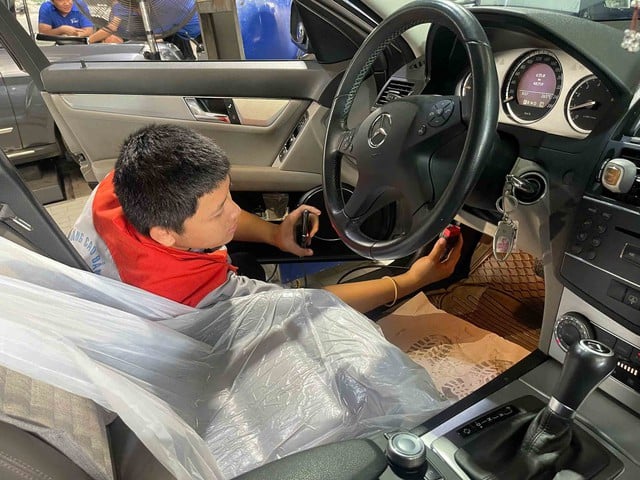
Automotive engineering students do internships at the company. This is a way to help students quickly approach reality.
PHOTO: NTCC
Internal data from this company shows that on average, each year, about 100 students from Far East College do internships. On average, the unit will recruit about 50 official employees from the internship programs. In addition, the company's "business course" and "management trainee" programs also create a promotion path for students, instead of starting from the lowest employee position.
A high-end hotel chain also recognizes the positive values of new graduates. Ms. Nguyen Hong Tham, HR Director of The Reverie Saigon, confirmed that this hotel alone has 45 students from Saigon College of Tourism who have worked and are working. However, she said that the hotel's main customers are mainly from the US, Japan, Korea, UK, and China. "If students wish to work in an international environment, the ability to communicate in English and other languages is a prerequisite, a plus point for their profile compared to other candidates," Ms. Tham emphasized.
Ms. Tran Thi Ngoc Thao, CEO of TMS, founder of HR Talks community, commented: "With the current surplus labor situation, businesses are not necessarily looking for experienced people but need multi-tasking, multi-skilled people. Therefore, if new graduates can meet the expectations of businesses, they are still welcome."
"Some industries are still willing to "sponsor" newcomers such as: customer service, telesales, customer care, education - foreign language centers, online sales... These jobs are easy to train, in high demand, suitable for students to accumulate basic skills", Ms. Thao stated the reality.
In terms of training, Ms. Phan Thi Le Thu, Vice Principal of Far East College (HCMC), frankly stated that many students graduate with degrees in hand but are not accepted by enterprises because the training is heavy on theory and lacks practice. Ms. Thu also pointed out many reasons why enterprises do not choose new graduates, including the reason that many schools provide training but it is not linked to reality, and the training program is quite far from the actual needs of enterprises. "When enterprises recruit, they have to spend time and money to retrain," Ms. Thu said.
Connecting classrooms and businesses
According to Master Phan Thi Le Thu, educational institutions must link training with businesses from the beginning. Businesses participate in teaching, give feedback on programs, and even organize courses right in the working environment.
In fact, some schools have been increasingly closely cooperating with businesses in training. For example, Vien Dong College has recently cooperated with Dong Phuong Group in teaching the F&B course (food service industry). "Previously, the school only invited lecturers from businesses to teach the F&B course, but now this course is taught at businesses," Master Thu informed, adding that from then on, when students graduate, it will be easier to approach businesses and businesses will also have a basis to accept new graduates.
Mr. Bui Tien Dat said that the business course will include both theory and practice. "In such a session, students will study and practice for about 160 hours, equivalent to 8 weeks. Each week, students will both study and work directly at the company," Mr. Dat added.
For many years, Ho Chi Minh City College of Economics has implemented a "dual training" model with many restaurant management courses taught directly at hotels. Master Tran Van Tu, Principal of the school, said that the school also closely cooperates with many banks to teach banking and finance.
Meanwhile, according to Dr. Dinh Van De, acting Principal of Ly Tu Trong College (HCMC), the school strengthens and focuses on expanding cooperative relationships with domestic and foreign enterprises, closely coordinating with enterprises in training activities: Admissions consulting, building training programs and curricula; career counseling through inviting enterprises to participate in the school's professional councils; participating in teaching, training lecturers, scientific research, solving employment for students, supporting training equipment, sponsoring scholarships, etc.
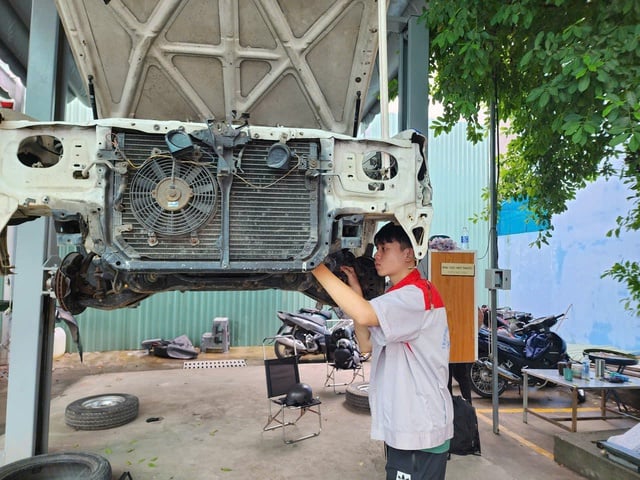
Training programs need to be linked to business needs.
Photo: NTCC
Skills students need to equip
With more than 10 years of supporting students with internships, hotel tours, and career sharing, Mr. Phan Truong Duy, Training and Development Manager at Vinpearl Landmark 81 (Marriott International), highly appreciates the confidence, love for the job, and professionalism of many young people.
From a human resources perspective, Ms. Tran Thi Ngoc Thao frankly said: "Faced with the current difficult situation, businesses consider very carefully when recruiting and will certainly open their doors to new graduates, as long as the candidate shows the employer that they are multi-skilled, flexible and have a positive mindset."
Ms. Thao pointed out the limitations of new employees such as: lack of practical experience means lack of problem-solving skills, time management skills. Because of the above, the group of new graduates will have difficulty in building trust with employers.
According to Ms. Thao, in addition to equipping themselves with knowledge, what students lack are the most basic soft skills: problem solving skills, effective communication, time management and teamwork skills. Schools teach students basic knowledge, but when they enter the real world, students need skills to transform into competencies.
"Therefore, never send a "blank CV" to the employer. Take advantage of the time to gain practical experience, do any suitable job to gain experience, because only when you work will you mature," Ms. Thao advised.
Lecturers also go to "apprenticeships" at businesses
Not only innovating the training program, lecturers at Far East College must continuously improve their knowledge and update technology at enterprises. Master Phan Thi Le Thu, Vice Principal of the school, said that lecturers who only teach at school find it difficult to keep up with new technology. "There are people who have graduated for more than 10 years, while in society, technology, especially in engineering or medicine, changes every day. Therefore, every year, lecturers of the school must go to study at enterprises. The time usually lasts about 2 months and is closely linked to internship modules. In particular, during the internships, lecturers not only observe or support but also directly participate as real students," shared Master Thu.
Source: https://thanhnien.vn/co-hoi-viec-lam-co-hep-cho-sinh-vien-moi-ra-truong-185250825190709676.htm






![[Photo] Multi-colored cultural space at the Exhibition "80 years of the journey of Independence - Freedom - Happiness"](https://vphoto.vietnam.vn/thumb/1200x675/vietnam/resource/IMAGE/2025/8/26/fe69de34803e4ac1bf88ce49813d95d8)

![[Photo] Hanoi: Authorities work hard to overcome the effects of heavy rain](https://vphoto.vietnam.vn/thumb/1200x675/vietnam/resource/IMAGE/2025/8/26/380f98ee36a34e62a9b7894b020112a8)
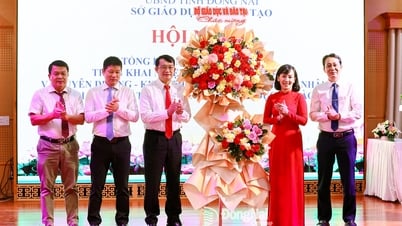







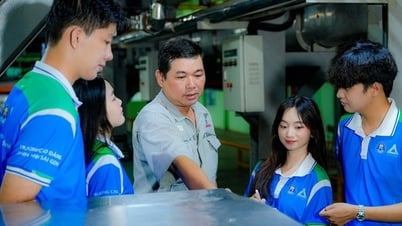

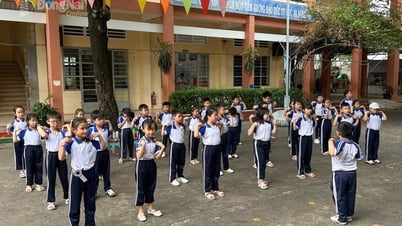
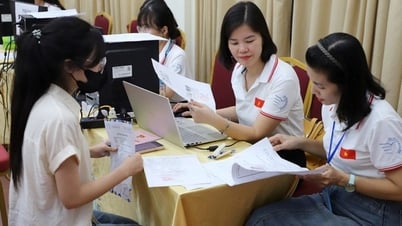

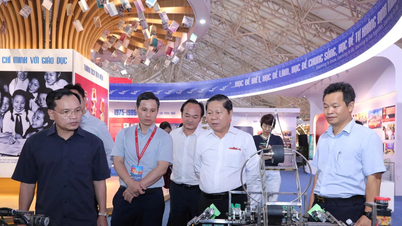

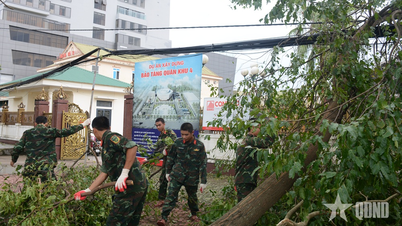

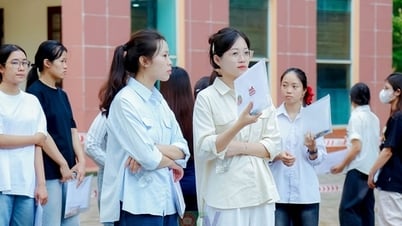


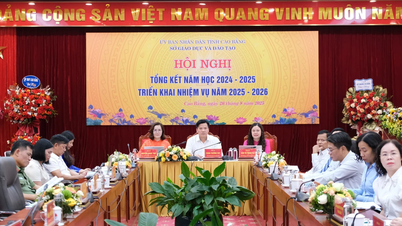






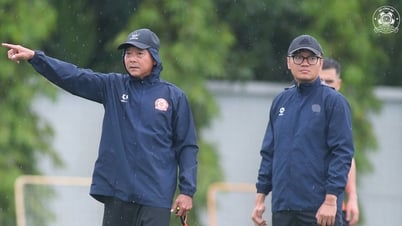

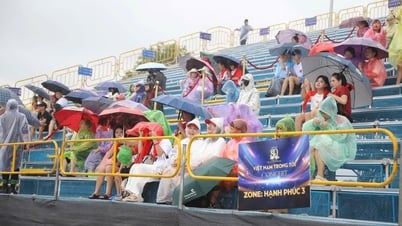




































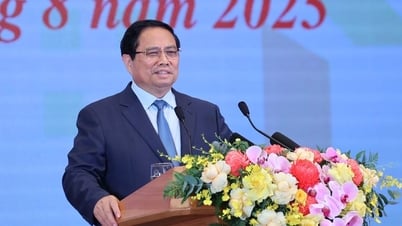




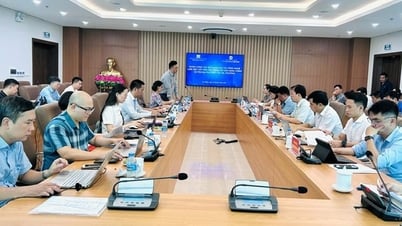
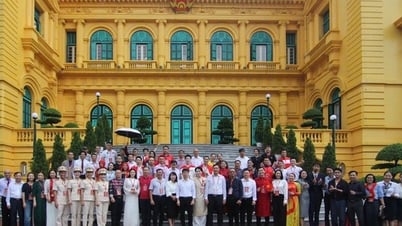
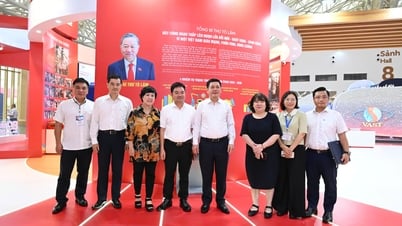




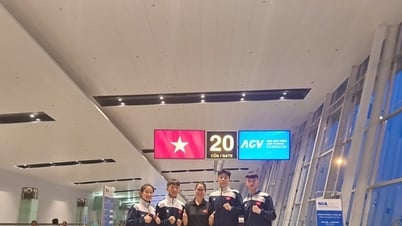



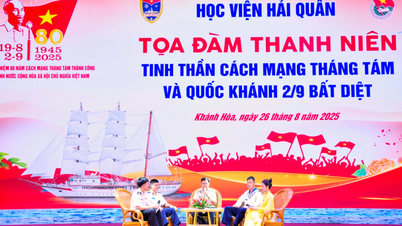

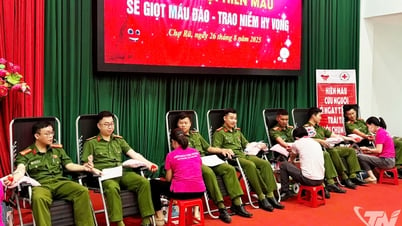

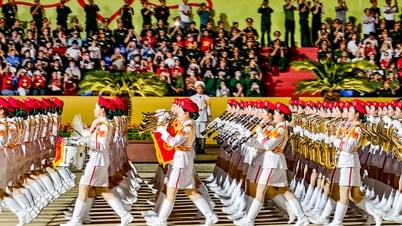
















Comment (0)